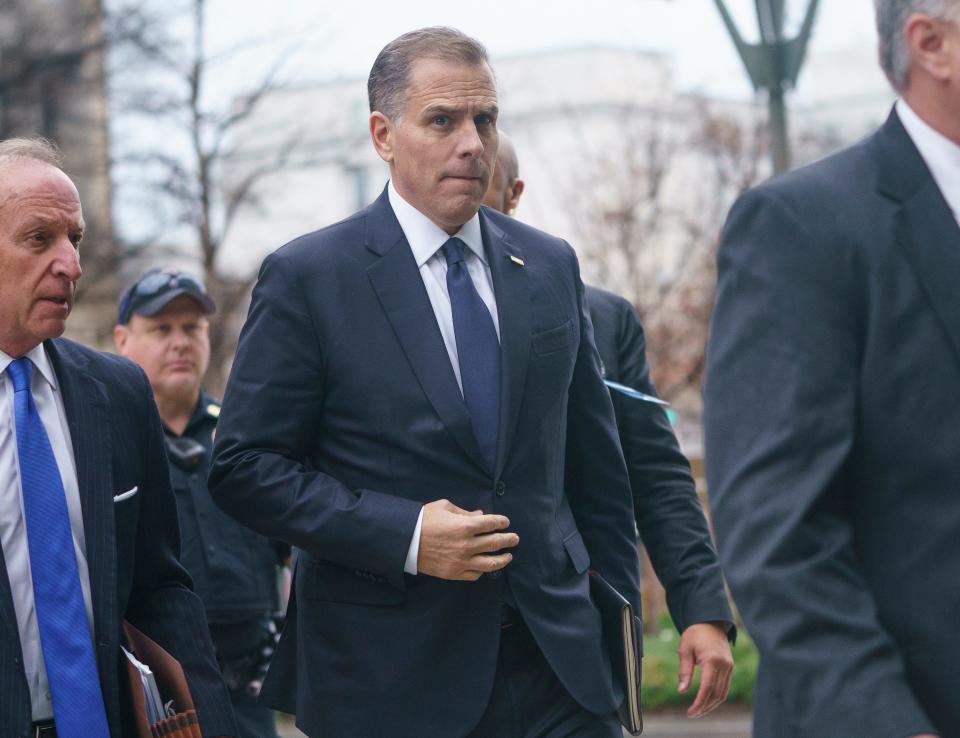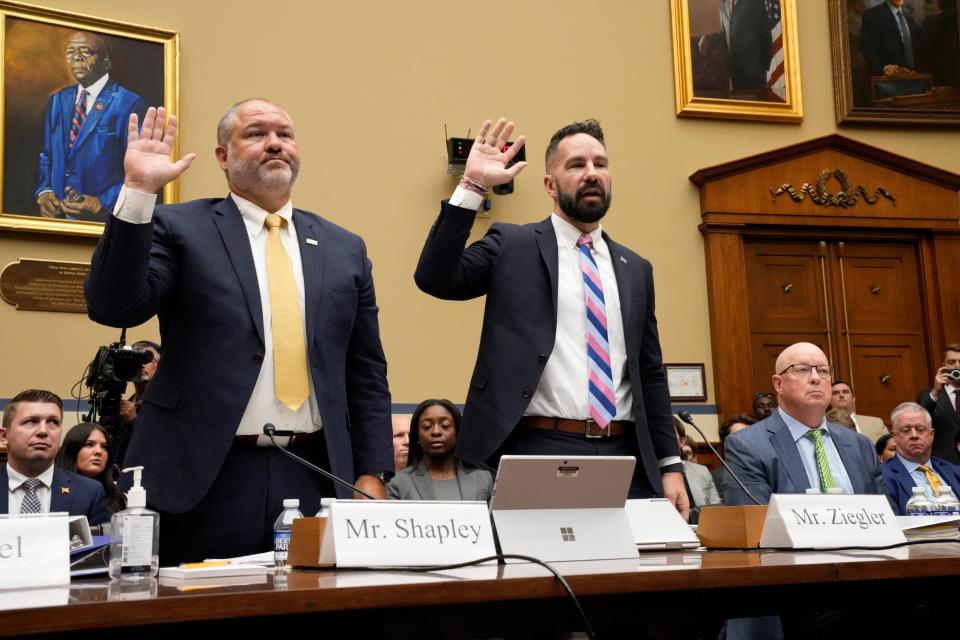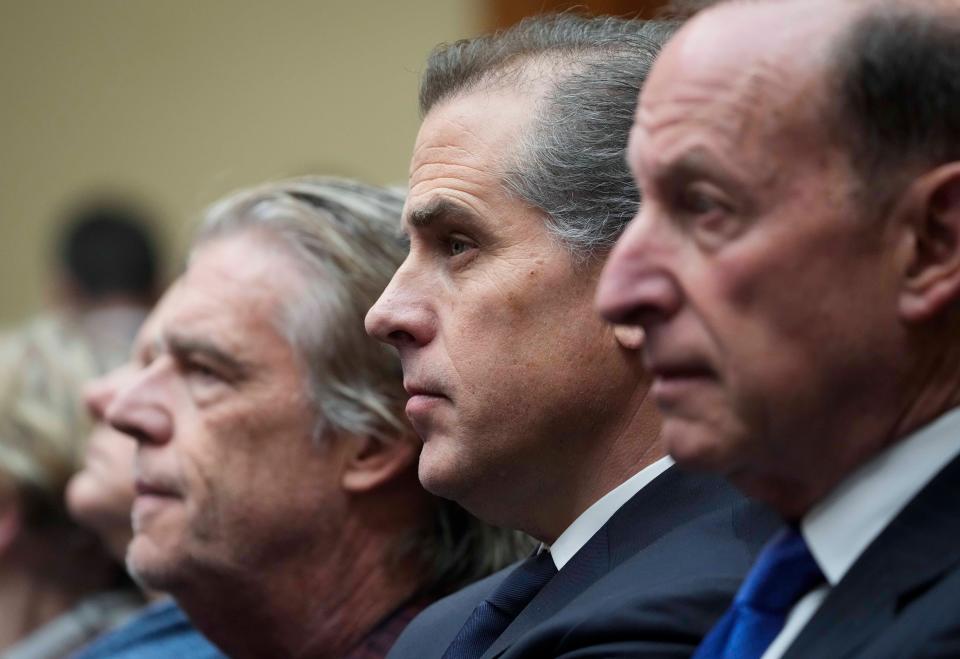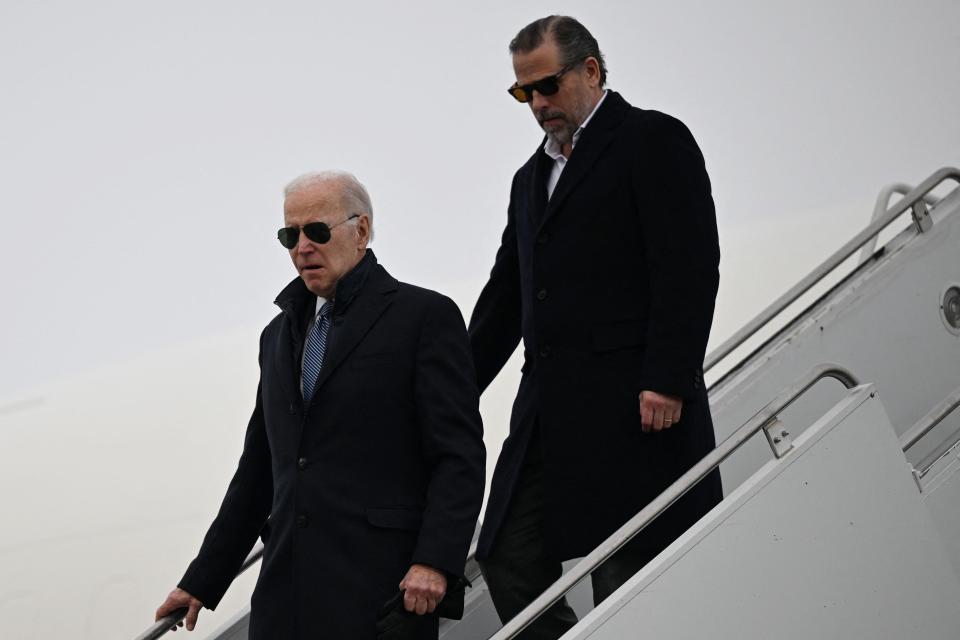Judge refuses to dismiss Hunter Biden's federal tax charges despite plea of political persecution
A federal judge refused to dismiss tax charges against Hunter Biden, brushing aside claims from the president’s son that the case resulted from political pressure because Republicans criticized a plea agreement that fell apart as too lenient.
U.S. District Judge Mark Scarsi in Los Angeles ruled Monday against throwing out the case based on eight motions from Biden, including selective prosecution and immunity from the charges because of the failed plea agreement.
The trial is scheduled to start June 20, a couple of weeks after a Delaware trial on gun charges.
Hunter Biden's lawyer, Abbe Lowell, said they "strongly disagree with the court’s decision and will continue to vigorously pursue Mr. Biden’s challenges."
The combined cases threaten to hound Hunter Biden as his father, President Joe Biden, campaigns to remain in the White House against likely Republican nominee Donald Trump.

Why did Hunter Biden ask to dismiss the tax charges against him?
Lowell filed eight arguments to dismiss some or all of the tax charges against him. The reasons included accusations of "outrageous government conduct," and "vindictive" and "selective" prosecution. Another claim was that Biden was immune from the charges because of the failed plea agreement.
The alleged "outrageous government conduct" referred to two Internal Revenue Service agents, Gary Shapley and Joseph Ziegler, accused of leaking confidential information about Biden's taxes through congressional testimony and during TV interviews, according to court records. Biden has sued the IRS over the revelations.
The "selective and vindictive prosecution" referred to Lowell's claim that Justice Department special counsel David Weiss filed multiple new charges against Biden without new evidence, succumbing to political pressure. Lowell noted "DOJ started piling on tax charges right after Weiss was dragged before Congress and admitted he started fearing for the safety of his team and family."
But Judge Scarsi swatted away the request as lacking evidence, ruling that Biden cited social media posts and legal blogs rather than formally recognized exhibits of evidence.
"These citations, however, are not evidence," Scarsi wrote. "To that end, the Court may deny the motion without further discussion."

How did prosecutors respond to Hunter Biden's accusations?
Weiss replied to the allegations of "outrageous government conduct" by arguing the actions of the two agents didn't result in faulty charges. If they broke the law, they could be charged criminally or sued rather than throw out Biden's indictment, he argued.
Weiss argued Biden has no immunity from the failed plea agreement because it never went into effect and was withdrawn Aug. 9. To prove selective prosecution, Weiss said Biden needed to show other people not prosecuted for the same allegations, which he hasn't.
Scarsi found no evidence of discriminatory prosecution.

What tax charges does Hunter Biden face?
Hunter Biden faces nine tax charges that carry a combined maximum penalty of 17 years in prison.
He was indicted on three felony and six misdemeanor tax charges for allegedly failing to pay at least $1.4 million in taxes on time from 2016 to 2019, and evading other taxes, all while spending millions on a lavish lifestyle.
Hunter Biden's lawyers said he repaid the back taxes before he was charged.
His foreign business dealings, which are mentioned in the tax indictment, are at the center of an impeachment investigation by House Republicans about whether his father profited. Lawmakers haven't found evidence of any payments to Joe Biden. Hunter Biden received millions from a Ukrainian industrial company and a Chinese private equity fund, according to the indictment.

What happened with Hunter Biden's plea agreement?
U.S. District Judge Maryellen Noreika in Delaware rejected a plea agreement in July 2023 that could have allowed Hunter Biden to avoid jail time on both the tax and gun charges.
The plea agreement would have allowed Biden to plead guilty to two misdemeanors for failing to pay his taxes in 2017 and 2018, and to enter a pretrial program for a gun charge that could have been dismissed if he complied. The deal might have allowed him to avoid prison.
Noreika refused to accept the deal because of disputes between prosecutors and defense lawyers over whether it protected Biden from potential future charges. Congressional Republicans blasted the plea agreement as too lenient.
Prosecutors led by Justice Department special counsel David Weiss deny the case is politically motivated and contend the evidence against Hunter Biden is “overwhelming."
Scarsi didn't resolve whether the government reneged on the plea agreement or it never went into effect for lack of a probation officer's signature. But he invited more debate about the issue later.
"The Government and Defendant both claim the agreement is unambiguous, but each party’s interpretation of the instrument stands in stark contrast to the other’s," Scarsi wrote.
Scarsi scheduled a pre-trial meeting May 29.
This article originally appeared on USA TODAY: In Hunter Biden tax case, judge refuses to dismiss charges
